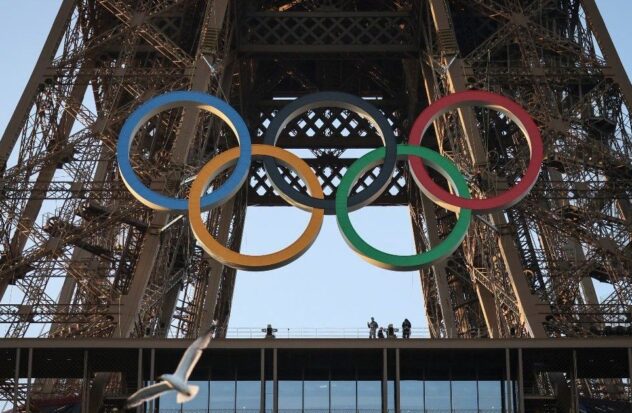PARIS.- The anti-doping fight for the Paris 2024 Olympic Games has been under preparation for months. More than a thousand people will monitor around 4,000 athletes during the competition.
All this will be under the watchful eye of the World Anti-Doping Agency (WADA), which has recently come under fire for its handling of the case of Chinese swimmers who tested positive but were not sanctioned ahead of the 2021 Tokyo Olympics.
Who’s in charge?
Created in 2018 and partly funded by the International Olympic Committee (COI), the International Testing Agency (ITA) plans, organizes and manages the results of anti-doping controls during the Games.
He already has two editions of experience: Tokyo in 2021 and Beijing in 2022. He will be fully in charge from the opening of the Olympic Village on July 18.
In fact, since mid-April, it has already assumed part of the control and is in dialogue with the international federations and national anti-doping agencies to better direct the controls.
“If there are athletes who are doping, they will do so before the Olympic Games, so the run-up to the Games is very important,” an ITA spokeswoman told AFP.
Qualifying for the Games ends late and therefore everyone who can secure a place must be monitored – that is, almost 40,000 athletes out of the 10,000 who finally obtain a place for the event.
At the last Summer Olympics, three years ago in Japan, 6,200 samples were taken during the competition from some 4,000 athletes, with a handful of positive cases.
At the 2022 Beijing Olympics, the case of young Russian skater Kamila Valieva, who tested positive for trimetazidine before the event and was subsequently suspended for four years, caused a major shock.
How are controls decided?
Based on ongoing monitoring in competitions, biological passports (which show the evolution of an athlete’s biological variables) or on people who raise the alarm: controls are decided based on multiple criteria.
Some disciplines, such as weightlifting, for example, are subject to special monitoring.
It is also considered a risk case when an athlete achieves a spectacular increase in his performance or when corruption is considered to be a problem in the country in question.
Those who climb the three steps of the podium or break records will be systematically subjected to tests. In total, around 4,000 athletes out of the 10,000 present are expected to be tested, according to the ITA.
According to anti-doping authorities, it is pointless to subject everyone to testing and it is better to exercise guidance in the decision-making process.
Chinese swimmers, the subject of an investigation by German television ARD and the New York Times, tested positive before the Tokyo Games without being sanctioned. They will now be closely monitored, according to an anti-doping source.
How many people perform the controls?
To collect urine and blood samples, more than 300 Doping Control Officers (DCOs), a third of whom will be French, will be deployed on the ground in accordance with the plan of the French Anti-Doping Agency (AFLD).
The athletes will also be escorted by people who will carry out surveillance duties during the process (800 in total, taking into account the Paralympic Games), volunteers chosen by the Organising Committee (OCOG).
The organisers are responsible for “collecting the samples” and all the logistics, as David Herbert, head of anti-doping at the OCOG, explained to AFP.
In total, some fifty anti-doping stations have been installed in the Olympic venues, including temporary ones, as well as in the Olympic Village.
The COJO must also arrange for the transport of the samples to the Orsay laboratory. This will be done by land vehicle via the Olympic routes and by plane from Tahiti in the case of surfers.
Athletes who are not staying in the Olympic Village, such as American basketball players, must give their location so that an anti-doping inspector can knock on the door of their hotel or training facility.
Source: AFP


